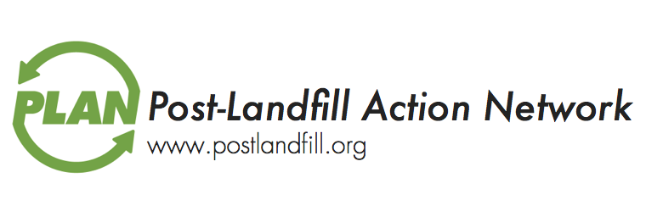
c/o College of Charleston
Post-Landfill Action Network (PLAN) Campus Coordinator Faye Christoforo spoke to students about reaching an economy without waste on Wednesday, April 4.
The lecture and workshop focused on identifying problems of unsustainability in the modern economy and the channels for reform. The event was aimed at starting this zero-waste project at the university level. PLAN is a five-year-old non-profit that works with college campuses on zero-waste efforts, specifically through acting as a third-party resource for student groups.
“We help connect campuses with each other—we are a network—and other organizations,” Christoforo said.
One of the priorities of the group is expanding student initiatives on campus.
“We also focus on leadership skills,” Christoforo said. “One of the most important things is that students leave campuses feeling empowered to do things beyond campus.”
Christoforo argued that foundational sustainability issues in our economy are infrastructural, through environmental racism and climate change, as well as capitalist consumerism through a consumerist culture and the depletion of resources without regeneration.
“When you look at waste, it is a problem of system failure,” she said.
Christoforo began her discussion of unsustainability in the economy through explaining how our garbage gets processed, and how it pushes problems to future generations. She criticized attempts to burn trash for energy as inefficient and counter-productive. She then addressed the promises of compost and recycling, arguing that the most effective strategy to reduce waste is to avoid its production to begin with.
Christoforo finished the lecture by advancing strategies people can get involved with to work toward a sustainable society.
She identified these points of intervention as individual resistance, redesigning future products, regulating industries, reusing past materials, and repairing existing products.
In the following workshop, students formed groups to discuss how they could apply sustainable, zero-waste ideas to the University. Many students saw a problem in the frequency of single-use containers, like those that are used at WesWings.
“I think we should expand Eco-to-Go,” said Jessica Gay ’20. “Because we can only use it for lunch.”
Other students identified potential room for improvement in addressing consumerist culture on campus, further integrating the University’s environmental groups, and reducing the frequency with which students order shipments online.
“Making more of a social stigma around shipping so many things to yourself,” said Margaret O’Donnell ’19. “Buying clothes every week—it shouldn’t be like that.”
Mason Mandell can be reached at mjmandell@wesleyan.edu and on Twitter @MasonMandell.
Comments are closed